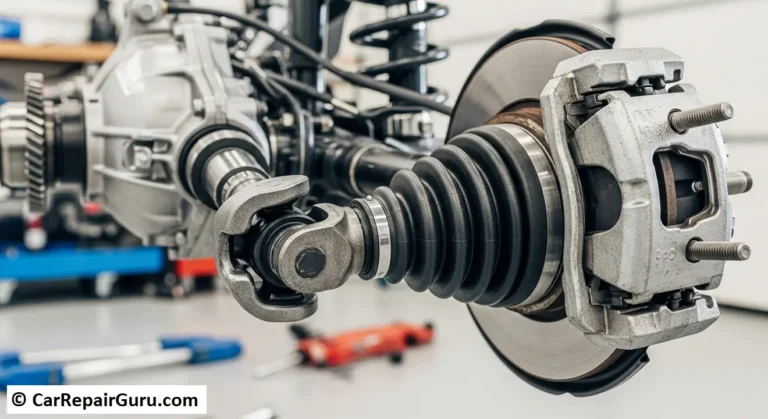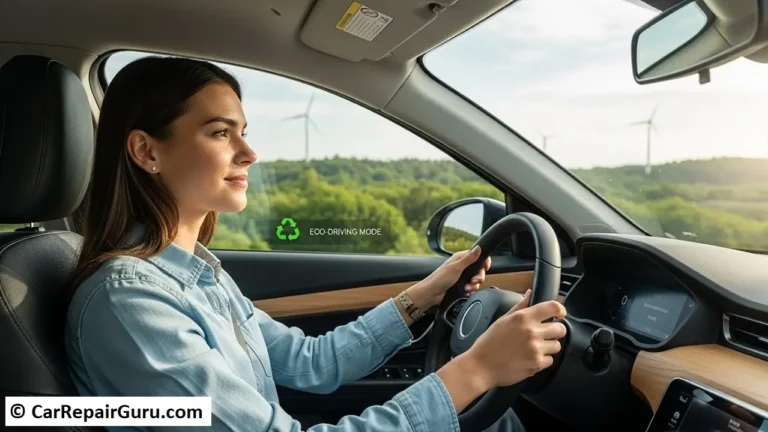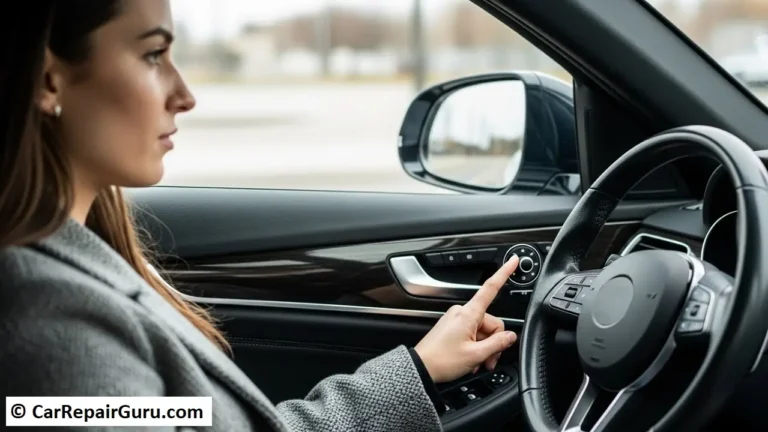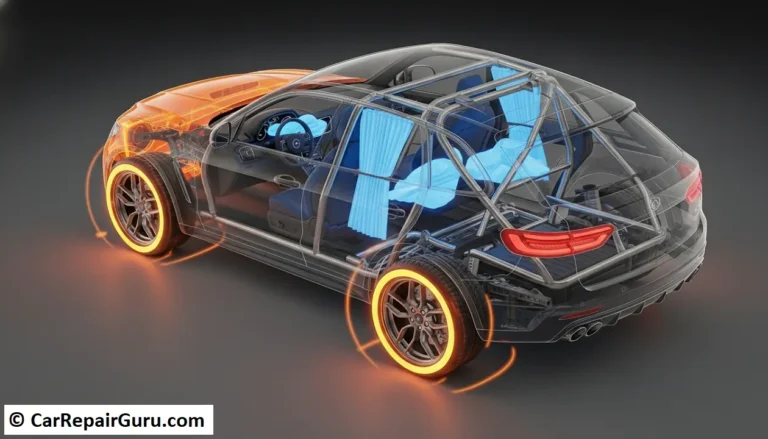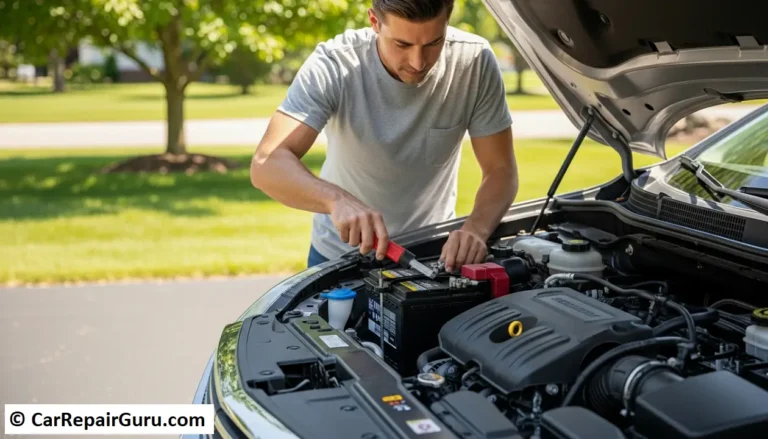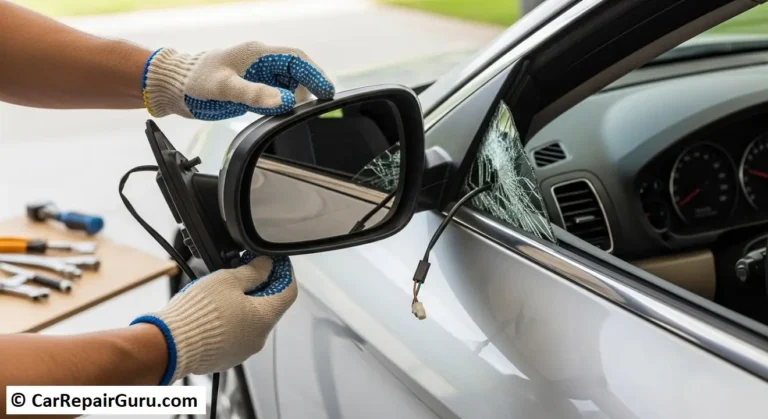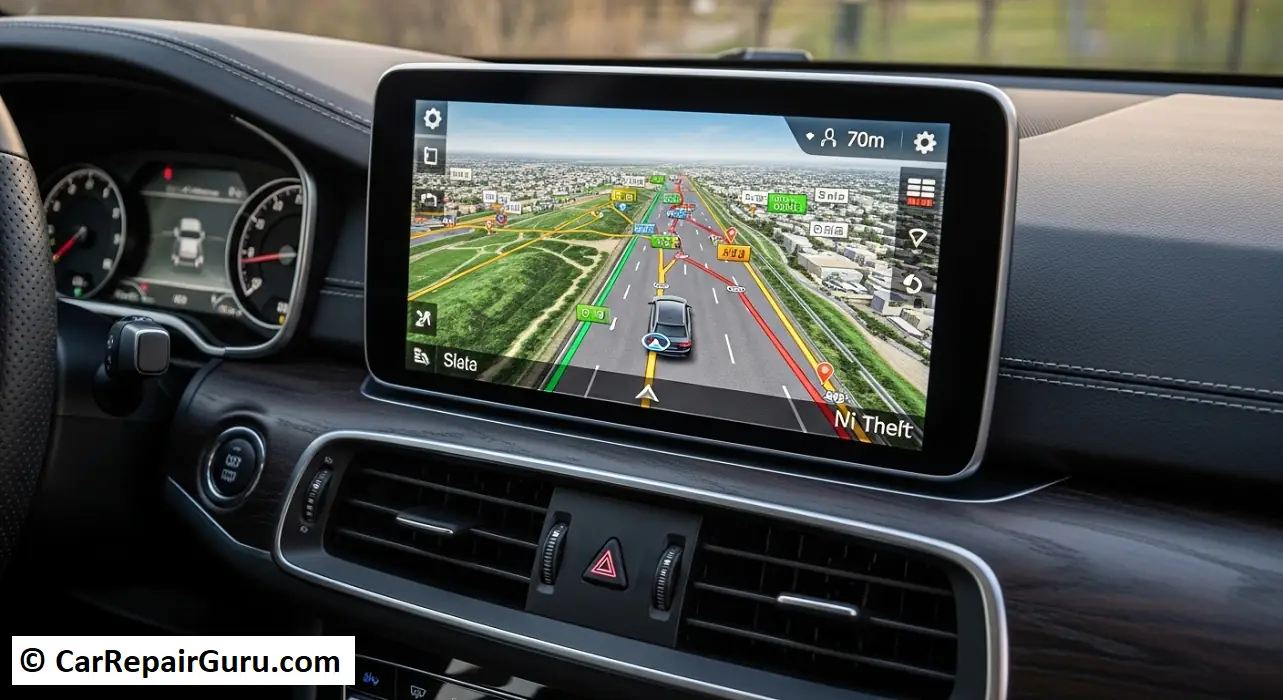
Imagine losing phone signal during a road trip—frustrating, right? Dedicated GPS systems for cars use satellite signals to provide accurate, uninterrupted navigation anywhere.
These devices offer real-time traffic updates, lane guidance, and voice commands, enhancing safety and efficiency. Whether portable or built-in, a reliable GPS ensures smoother driving for commuters, travelers, and truck drivers alike.
Why You Need a Dedicated GPS System for Your Car
Many drivers rely on smartphone apps for navigation, but dedicated GPS systems for cars offer several advantages that make them a better choice for serious travelers.
Advantages Over Smartphone Navigation
Unlike smartphones, which depend on cellular signals, car GPS systems use satellite tracking to provide accurate navigation even in remote areas. This means you won’t lose service in tunnels, mountains, or rural roads. Additionally, many GPS navigation devices come with real-time traffic updates, helping you avoid congestion and take the fastest route.
Enhanced Features for a Better Driving Experience
A dedicated GPS offers turn-by-turn navigation, voice guidance, and offline maps, ensuring smooth travel even without an internet connection. Features like lane guidance, speed limit alerts, and emergency location tracking make driving safer and more convenient. Some advanced models even include dash cams and Bluetooth connectivity for hands-free operation.
Better Accuracy for Long Trips, Trucks, and Motorcycles
For truckers and motorcycle riders, high-accuracy GPS devices are crucial. Truck GPS systems include route customization based on vehicle size and weight, while motorcycle GPS devices offer weather-resistant designs and glove-friendly controls.
By investing in a dedicated GPS system, drivers gain reliable navigation, improved safety, and enhanced travel convenience, making every journey stress-free.
Top 5 GPS Systems for Cars in 2025
With the vast selection of GPS systems for cars, choosing the right one depends on your driving needs. Whether you’re a commuter, a long-haul truck driver, or a motorcycle enthusiast, investing in a high-accuracy GPS device can greatly improve your navigation experience. Below, we review the top 5 GPS systems for 2025, highlighting their features, best use cases, pros, and cons.
1. Garmin DriveSmart 65 GPS Navigator
Features:
✔ 6.95-inch high-resolution touchscreen
✔ Voice command for hands-free operation
✔ Wi-Fi updates for maps and software
✔ Bluetooth connectivity for calls and smart notifications
✔ Safety alerts for sharp curves, school zones, and speed cameras
Best For:
✅ Everyday commuters looking for a user-friendly GPS with real-time traffic updates.
Pros & Cons –
✅ Pros:
✔ Easy-to-read display with clear turn-by-turn navigation
✔ Traffic and weather alerts for smooth driving
✔ Preloaded maps with lifetime updates
❌ Cons:
No built-in dash cam
Battery life is shorter compared to other models
2. Garmin DriveCam 76
Features:
✔ 7-inch display with intuitive interface
✔ Built-in dash cam for accident recording
✔ Real-time vehicle tracking system
✔ Smart notifications and live traffic updates
Best For:
✅ Users who want a dual-function GPS with both navigation and safety monitoring.
Pros & Cons –
✅ Pros:
✔ Combines GPS navigation and dash cam recording in one device
✔ Live tracking helps monitor your vehicle’s location
✔ Voice control for hands-free operation
❌ Cons:
More expensive than standard car GPS devices
Larger size may not be ideal for compact cars
3. TomTom GO Supreme 6″ GPS
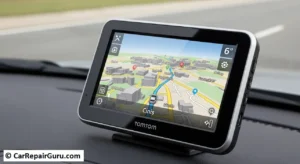
Features:
✔ Real-time traffic updates for faster routes
✔ Lane guidance for easy highway navigation
✔ Wi-Fi connectivity for automatic updates
✔ Advanced route planning with alternative paths
Best For:
✅ Drivers looking for an affordable car GPS with smart features and traffic optimization.
Pros & Cons –
✅ Pros:
✔ Affordable car GPS with premium features
✔ Speed camera alerts and lane guidance for safer driving
✔ Works well in urban and suburban environments
❌ Cons:
Screen resolution is lower compared to Garmin models
No built-in dash cam or Bluetooth
4. Garmin Zumo XT 2 (Motorcycle GPS)
Features:
✔ IPX7 water resistance for all-weather riding
✔ High-accuracy GPS device with off-road maps
✔ Customizable routing for adventure riders
✔ Bluetooth connectivity for helmet communication
Best For:
✅ Motorcycle riders needing a durable, reliable vehicle tracking system with glove-friendly controls.
Pros & Cons –
✅ Pros:
✔ Rugged and weather-resistant design
✔ Offline maps for navigation in remote areas
✔ Large touchscreen that works with gloves
❌ Cons:
More expensive than standard GPS devices
No built-in dash cam or real-time traffic tracking
5. Rand McNally OverDryve 7 Pro
Features:
✔ Large 7-inch display for easy reading
✔ Truck GPS with commercial vehicle routing
✔ Weather and fuel price updates for truck drivers
✔ Built-in entertainment and voice assistant
Best For:
✅ Truck drivers needing long-distance GPS navigation with customized routes and real-time updates.
Pros & Cons –
✅ Pros:
✔ Best truck GPS system with road restrictions and weight limits
✔ Wi-Fi connectivity for automatic updates
✔ Entertainment features like music and podcasts
❌ Cons:
Larger size may not be ideal for small vehicles
Higher price point compared to standard car GPS units
Final Thoughts
Each of these GPS systems for cars caters to different driving needs, from daily commuting to motorcycle touring and truck navigation. When selecting the best automotive GPS, consider features like real-time traffic updates, offline maps, dash cam integration, and Bluetooth connectivity. Investing in the right GPS system ensures safer, more efficient, and hassle-free driving.
Key Features to Consider When Buying GPS Systems for Cars
When choosing a GPS system for your car, it’s essential to consider several key features to ensure you get the best navigation accuracy, convenience, and usability. Below are the top factors to keep in mind before making a purchase.
1. Screen Size and Display Resolution
A larger screen (6-7 inches) makes maps easier to read, especially while driving. High-resolution displays provide clearer visuals, reducing distractions and improving lane guidance accuracy.
2. Battery Life & Portability
Some GPS devices come with built-in batteries, while others rely on car power. For portable GPS units, longer battery life (4-6 hours) is ideal, especially for motorcycles and rental car users who may need navigation without constant charging.
3. Navigation Accuracy & Real-Time Traffic Updates
A high-accuracy GPS device should provide precise location tracking with minimal signal loss. Models with real-time traffic updates help drivers avoid congestion and accidents by offering alternative routes in live time.
4. Offline vs. Online GPS Mapping
While online GPS systems provide live updates on road conditions, they require an internet connection. Offline GPS devices store preloaded maps, making them ideal for remote areas where cell service is weak.
5. Additional Features for a Smarter GPS System
- Bluetooth connectivity allows hands-free calling and smart notifications.
- Voice command support lets drivers control the GPS without distractions.
- Dash cam integration records driving footage for safety and accident evidence.
- Speed limit alerts help prevent tickets and improve road awareness.
By considering these essential features, you can choose the best GPS system that meets your needs, whether for daily commuting, road trips, or professional driving.
Installation & Maintenance Tips for Car GPS Systems
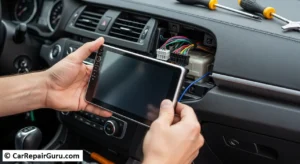
Investing in a GPS system for your car is only the first step—proper installation and maintenance ensure optimal performance and longevity.
1. Proper Installation Techniques
- Dashboard Mounting: Secure the GPS on the dashboard or windshield using a suction mount for better visibility and accessibility.
- Wiring Setup: Use the 12V power adapter or hardwire the device to your vehicle’s electrical system for continuous power.
- Positioning: Place the GPS unit in a clear line of sight to receive uninterrupted satellite signals.
2. Updating Maps & GPS Software
- Regularly check for map updates via Wi-Fi or USB connection to ensure accurate navigation and real-time traffic alerts.
- Update firmware and GPS software to improve performance and security features.
3. Battery Life & Storage Care
- Unplug the device when not in use to prevent battery overcharging.
- Store the GPS in a cool, dry place to protect it from heat and moisture damage.
- Use a memory card to expand storage and keep system performance smooth.
Following these tips will keep your car GPS system running efficiently for years.
Conclusion
Investing in a GPS system for your car is essential for safer, more efficient, and stress-free navigation. Unlike smartphone navigation, dedicated GPS devices offer uninterrupted service, real-time traffic updates, and precise satellite tracking, making them a must-have for daily commutes, road trips, and professional driving.
Choosing the right GPS tracker or navigation system depends on your needs—whether you require a truck GPS, motorcycle GPS, or a standard car GPS. A high-accuracy GPS device enhances your driving experience by providing reliable directions, improved safety, and smart travel features.
FAQ
What is the best GPS system for cars in 2025?
The Garmin DriveSmart 65 is a top choice due to its high-resolution display, voice command, real-time traffic updates, and built-in safety alerts, making it one of the best GPS systems for cars in 2025.
Is a dedicated GPS better than using a phone for navigation?
Yes. Unlike smartphones, GPS devices for cars provide more accurate navigation, uninterrupted service, and offline maps without relying on mobile data or signal strength.
Can I use a GPS tracker to locate my stolen car?
Yes. Some GPS trackers for vehicles come with real-time vehicle tracking, allowing you to monitor your car’s location remotely and even receive theft alerts.
Do GPS devices require internet access?
No. Most GPS navigation systems use satellite signals and preloaded maps, allowing them to function without an internet connection. However, features like live traffic updates may require Wi-Fi or mobile data.
What features should I look for in a car GPS?
Key features to consider include turn-by-turn navigation, real-time traffic updates, lifetime map updates, voice command, Bluetooth compatibility, and dash cam integration for added convenience and safety.
